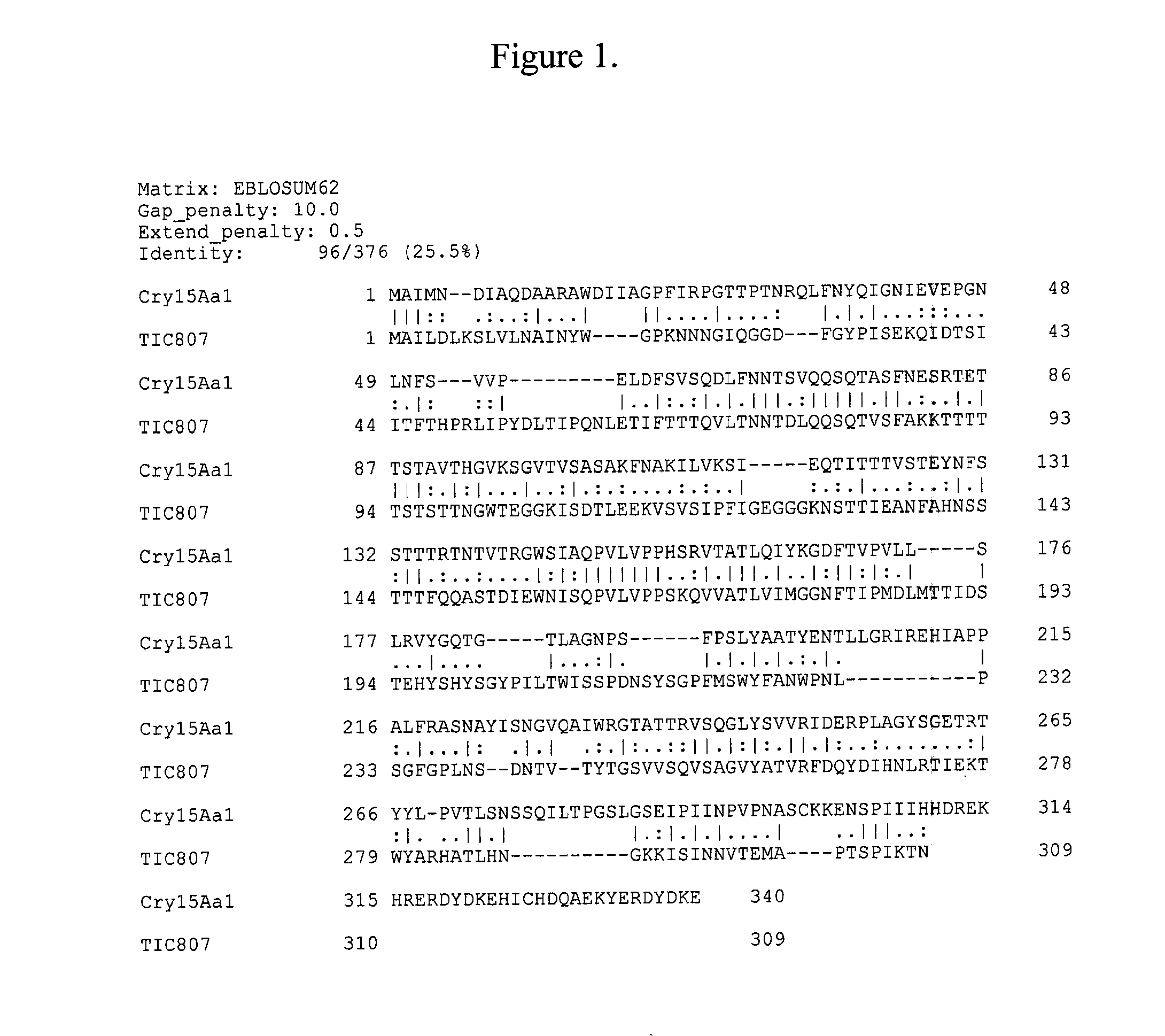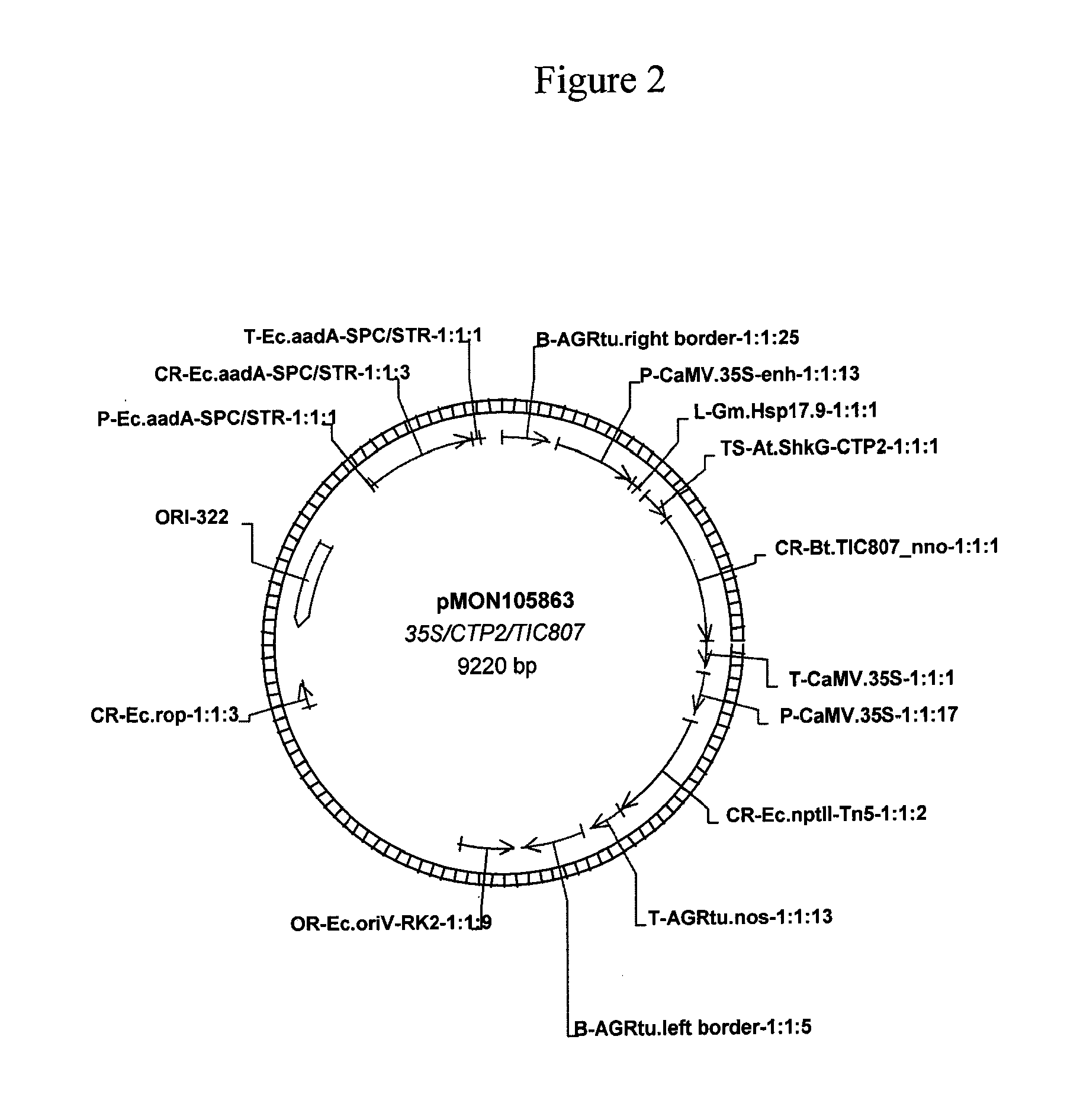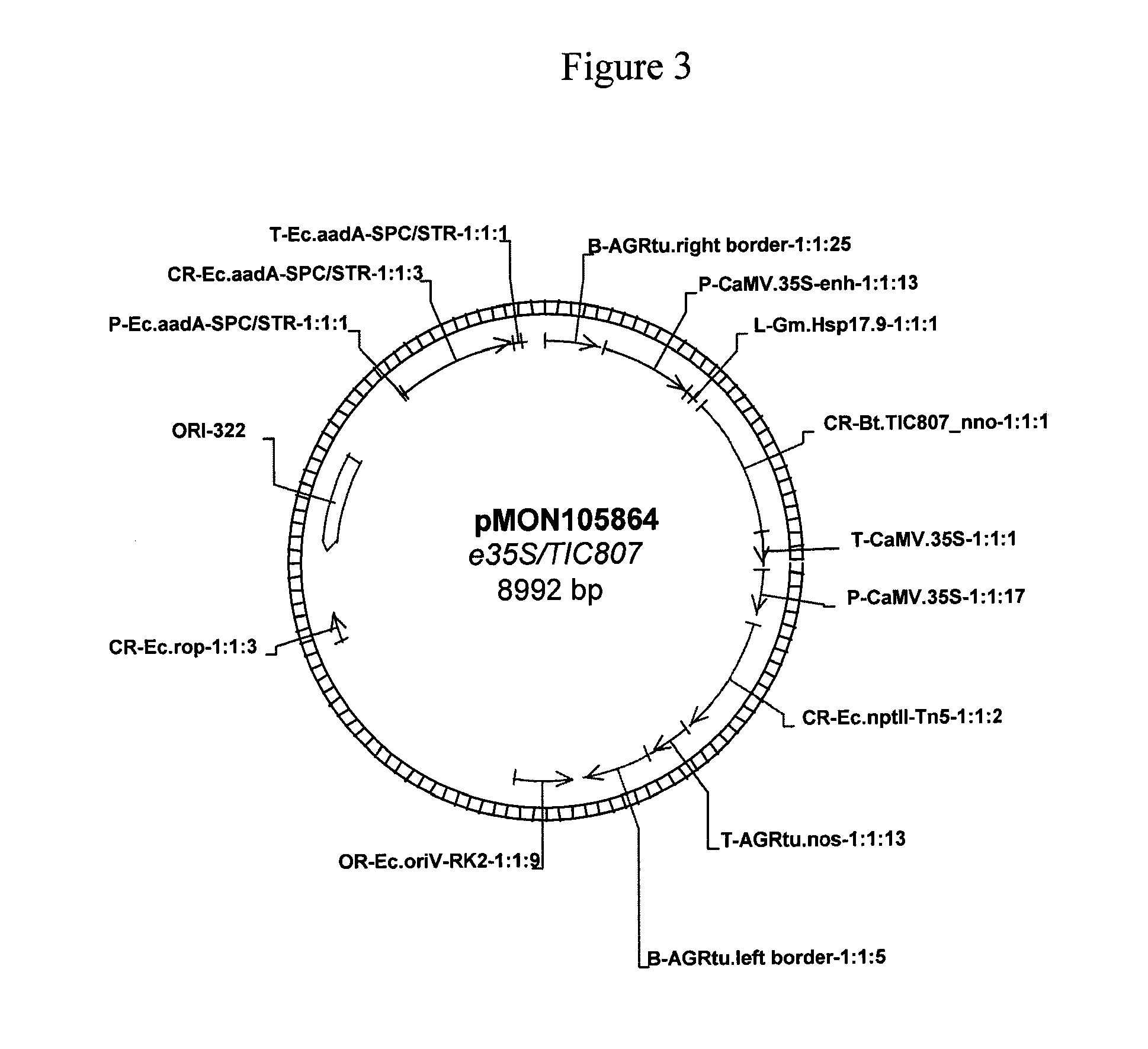Hemipteran-and Coleopteran Active Toxin Proteins from Bacillus Thuringiensis
a technology of active toxin and hemiptera, which is applied in the field of insect-inhibitory bacillus thuringiensis proteins, can solve the problems of osmotic imbalance, toxic endotoxin crystals to insect larvae, and lysis of the cells lining the midgut epithelium
- Summary
- Abstract
- Description
- Claims
- Application Information
AI Technical Summary
Benefits of technology
Problems solved by technology
Method used
Image
Examples
example 1
Identification of Bacillus thuringiensis Strain EG2934
[0196]This example describes Bacillus thuringiensis strain EG2934 and crystal proteins derived from this strain.
[0197]Bacillus thuringiensis strains are well known for their ability to produce parasporal crystals that contain proteins with diverse insecticidal activities against Lepidopteran, Coleopteran, and Dipteran insect species. These parasporal crystals exhibit a variety of geometric shapes when viewed by phase-contrast microscopy and have been described as irregular, cuboidal, rod-shaped, rhomboidal, bipyramidal, et cetera. B. thuringiensis strains exhibiting Lepidopteran toxic activity appear to be more common than B. thuringiensis strains exhibiting toxicity to other insect species. Parasporal crystals exhibiting a bipyramidal shape are frequently associated with Lepidopteran toxic B. thuringiensis isolates. This bipyramidal crystal structure-function relationship with Lepidopteran activity provides an advantage when scr...
example 2
Characterization of Crystal Proteins Produced by the B. Thuringiensis Strain EG2934
[0198]This example illustrates the characterization of crystal proteins isolated from the B. thuringiensis strain EG2934 and the subsequent initial characterization of the Lygus active toxin protein, TIC807.
[0199]B. thuringiensis strain EG2934 was grown at 25 to 28 degrees Celsius in C2 sporulation medium (Donovan et al., Mol. Gen. Gent. 214: 365-372, 1988) for 3 to 4 days or until fully sporulated and lysed. Spores and crystals were collected by centrifugation and resuspended in wash buffer (10 mM Tris-HCl, 0.1 mMr EDTA, 0.005 percent Triton X-100, pH 6.8) and collected again by centrifugation. The spore-crystal pellets were resuspended in wash buffer at one tenth the original culture volume. Crystal proteins in the 10× concentrates were analyzed by SDS polyacrylamide gel electrophoresis (SDS-PAGE). Protein concentrations were determined by densitometry using bovine serum albumin (BSA) as a standard....
example 3
Isolation and Characterization of TIC807 Isolated from B. thuringiensis Strain EG2934
[0201]This example illustrates the screening for phage clones containing DNA encoding the TIC807 protein. The cloning and sequencing of the DNA encoding the TIC807 protein is also described. The method described below can also be applied to recovery of DNA sequences encoding TIC807 homologs and related genes in plasmid, cosmid or phage libraries derived from other B. thuringiensis strains.
[0202]The oligonucleotide primers described in example 2, djc-prl2 and djc-prl3 (SEQ ID NO:2 and SEQ ID NO:3, respectively), were used as hybridization probes to probe a library constructed using size selected DNA isolated from B. thuringiensis strain EG2934. In the degenerate oligonucleotides of SEQ ID NO:2 (AAYGCDATHA AYTAYTGGGG DCCDAARAAY) and SEQ ID NO:3 (TGGGGDCCDA ARAAYAAYAA YGARATWCAR), Y residues represent a mixture of C or T residues, D residues represent a mixture of A, G, or T residues, H residues repres...
PUM
 Login to View More
Login to View More Abstract
Description
Claims
Application Information
 Login to View More
Login to View More - R&D
- Intellectual Property
- Life Sciences
- Materials
- Tech Scout
- Unparalleled Data Quality
- Higher Quality Content
- 60% Fewer Hallucinations
Browse by: Latest US Patents, China's latest patents, Technical Efficacy Thesaurus, Application Domain, Technology Topic, Popular Technical Reports.
© 2025 PatSnap. All rights reserved.Legal|Privacy policy|Modern Slavery Act Transparency Statement|Sitemap|About US| Contact US: help@patsnap.com



